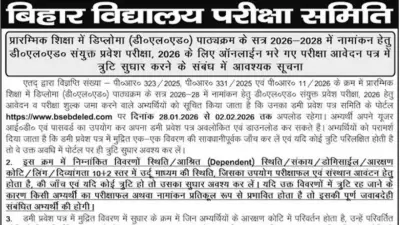
In a surprising twist in India's employment landscape, seasoned professionals with decades of experience are finding themselves increasingly sidelined in the job market. The very experience that should be their greatest asset is becoming an unexpected liability.
The Experience Paradox: When More Becomes Less
Current hiring trends reveal a troubling pattern for senior professionals. Companies across sectors are showing a marked preference for younger, more affordable talent, leaving experienced candidates in a difficult position. This shift represents a significant departure from traditional hiring practices where experience was highly valued.
Why Companies Are Shying Away from Experience
Several factors are driving this unexpected trend:
- Budget Constraints: Experienced professionals command higher salaries, making them less attractive to cost-conscious employers
- Cultural Fit Concerns: Companies worry about integrating senior professionals into predominantly younger teams
- Technological Adaptation: The rapid pace of digital transformation favors candidates with recent, relevant skills
- Long-term Investment: Employers prefer investing in younger talent they can mold and retain longer
The Human Cost of Market Shifts
For professionals in their 40s and 50s, this trend has created unprecedented career challenges. Many find themselves overqualified for available positions yet unable to secure roles matching their experience level. The psychological and financial impact on affected individuals and their families is substantial.
Navigating the New Reality: Strategies for Experienced Professionals
Despite these challenges, there are ways experienced candidates can improve their prospects:
- Skill Refreshment: Continuously update technical and digital skills to stay relevant
- Flexibility: Be open to different roles, industries, and even temporary positions
- Networking: Leverage professional connections and personal networks
- Consulting Opportunities: Explore freelance or consulting work as an alternative to traditional employment
- Mentorship Roles: Position yourself as a trainer or mentor to younger professionals
The Broader Economic Implications
This trend raises important questions about workforce utilization and economic efficiency. When experienced professionals are underemployed or unemployed, it represents a significant waste of human capital and accumulated knowledge. Economists and policymakers are beginning to take note of this emerging challenge.
As the job market continues to evolve, both employers and experienced professionals must adapt to these new realities. The solution lies in finding ways to balance experience with affordability, and wisdom with adaptability.





